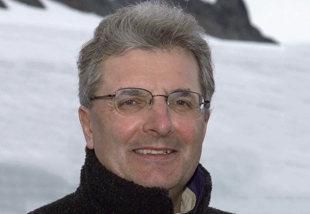On the evening of 28 October journalists, broadcasters, scientists and NGO’s came together in the House of Commons with the All Party Parliamentary Climate Change Group (APPCCG) to discuss a report launched by the International Broadcasting trust entitled “The environment on TV: Are broadcasters meeting the challenge”. The report aimed to investigate how well environmental issues and in particular climate change is communicated to the public. The research combined quantitative analysis of current television material and qualitative analysis of interviews with range of broadcasters and producers. The report examines non-news television with an environmental theme broadcasted over a 12 month period between June 2012 and May 2013 across the mainstream TV channels (BBC, ITV, Channel 4 and Sky). A total of 394 hours of new environmental programming was shown over the studied period and 84% of this was broadcast at peak times (between 18.30 and 22.30). Natural history was shown to be a firm favourite, making up 160 hours however, climate change coverage did not even get one hour, why?
The report highlights that the main challenge is that the environment is perceived as a difficult theme for audiences to engage with, especially climate change. It is extremely difficult to present the problems facing the planet under climate change as a ‘local’ problem and as a result it is perceived as doom and gloom and something that you or I have no control over and therefore cannot influence. With this in mind, it is not the content which broadcasters are lacking, but the format for communicating the information to reluctant audiences. The key element to designing a TV programme is to get the narrative and story-telling to work, for example Hugh’s Fish Fight (Channel 4) successfully tackled the rather dry topic of EU fishing directives. Given the correct format, the audience engaged and 850,000 people signed up online to the ‘Fish Fight’ campaign and 42,000 tweets were sent over a 24-hour period to the country’s biggest supermarkets. So perhaps with the correct format audiences will engage with the topic of climate change?
The meeting saw a panel come together to give their reactions to the report findings, including Chris Rapley (Professor of Climate Science, University College London), Ralph Lee (Head of Factual, Channel 4), Bill Lyons (Executive Editor, Countryfile, BBC), Leo Hickman (Chief Advisor, Climate Change, WWF-UK and formerly at The Guardian), and Caroline Haydon (author of the report).
 |
| Chris Rapley |
Chris Rapley provided a scientist’s prospective on the problem and stated that there can be a lack of connections between scientists and the media, making it difficult for scientist to gain an avenue toward public engagement through TV. In addition to this, scientists come to the job for the joy of discovering new things about how the world works but that does not mean that they are inherently good communicators to a non-science audience or can be creative and design a great TV format for their work. Therefore support is needed from producers and broadcasters to provide this link to the general public.
Panel members representing the broadcasters had a slightly different view on the problem, with Bill Lyons suggesting that it was not part of a broadcaster’s remit to make sure that climate science is communicated to the public, and that to a certain extent it is the problem of the scientist to get their message heard. It was also highlighted that given the right format broadcasters would be happy to communicate climate science, but it has to be packaged in an appealing way for audiences. Ralph Lee suggested that a documentary focussed on climate change would not hold audience’s attention and that a new idea was needed to tackle the subject of climate change. In surveys of what people like to watch on TV, documentaries are always high on the wish-list, however viewing figures do not reflect this in reality, people like to watch TV for escapism and therefore the highest ratings go to reality TV and soap operas rather than hard-hitting documentaries! Perhaps we need a talent show contestant to stand up and sing a song about climate change or a soap character to get a sudden interest in recycling in order to make a widespread impact!!
In summary, the meeting showed that all were in general agreement that environmental issues and climate change were important subjects to communicate to the public, but much thinking is needed regarding the best way forward to achieve these aims. It seems that in order to engage the general public the issues need to be made local so that they feel that they are directly affected at that we are facing these issues now and not in 10 years time. I feel, given the debate that it should be seen as a joint responsibility between scientists and broadcasters to solve this problem. As a scientist I can provide data and other factual information, I can perhaps also provide a narrative, but links with broadcasters are key if the information is ever going to get directly into millions of people’s homes. I do believe that if we engage together then it is possible to find a mechanism to inspire ordinary people to act on difficult, intangible and sometimes unpopular issues such as climate change.
This blog has been written by Dr Charlotte Lloyd, Geographical Sciences, University of Bristol.

